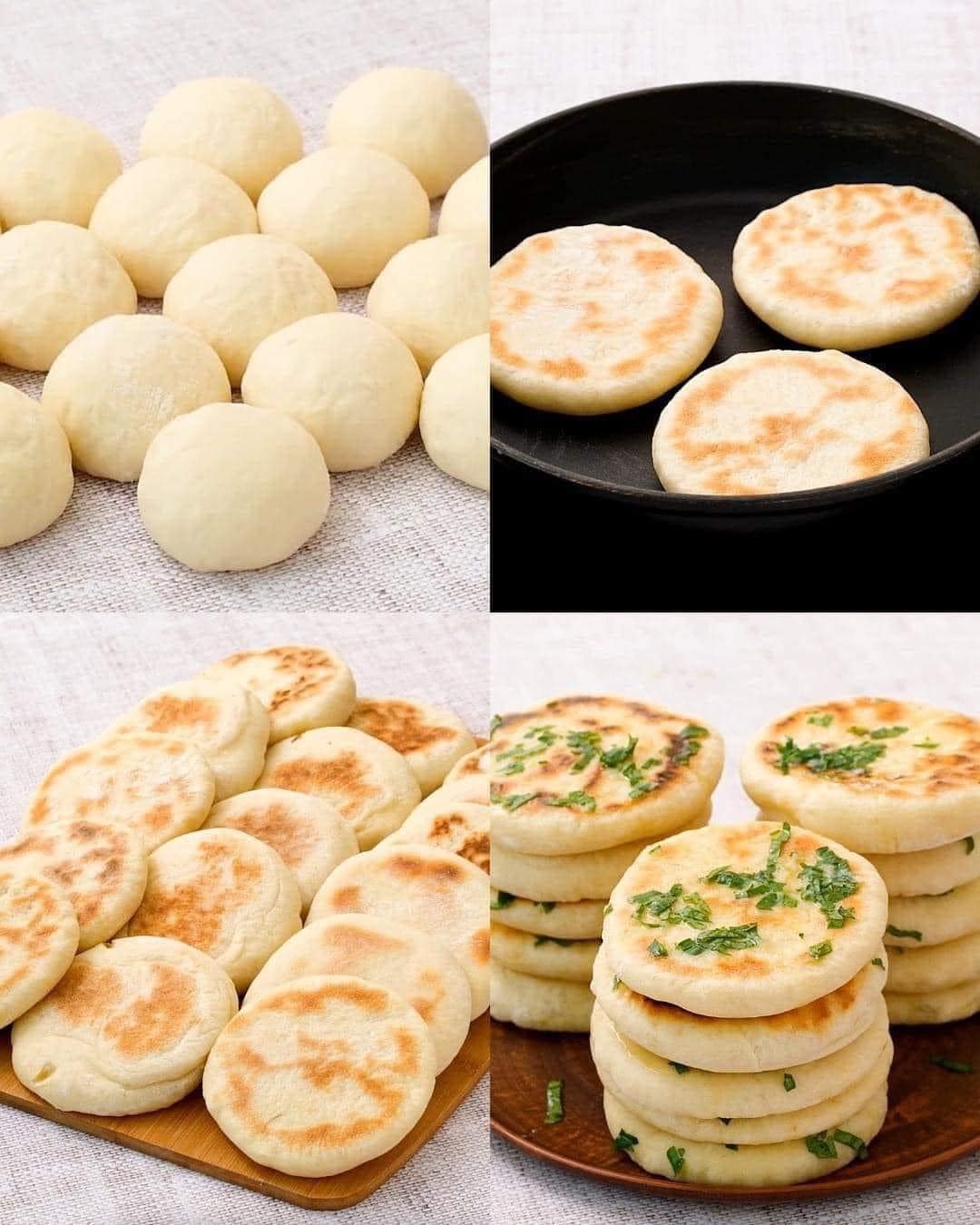ADVERTISEMENT
Instructions for Making Turkish Bread
Step 1: Activate the Yeast
- In a small bowl, combine the warm water, sugar, and active dry yeast. Stir to dissolve and let the mixture sit for 5-10 minutes, or until it becomes frothy. This ensures the yeast is active and ready to help the dough rise.
Step 2: Prepare the Dough
- In a large mixing bowl, combine the flour and salt. Make a well in the center.
- Pour in the activated yeast mixture and olive oil. If you want a softer bread, add a tablespoon of milk to the dough as well.
- Mix the ingredients together until a sticky dough forms. Then, transfer the dough to a clean, lightly floured surface.
Step 3: Knead the Dough
- Knead the dough for about 8-10 minutes, or until it becomes smooth and elastic. If the dough is too sticky, add a little more flour, a tablespoon at a time. Be careful not to add too much, as the dough should remain soft and slightly tacky.
- Form the dough into a ball, then coat it lightly with olive oil. Place it back into the bowl and cover with a damp kitchen towel. Allow the dough to rise in a warm place for about 1 hour, or until it has doubled in size.
Step 4: Shape the Dough
- Once the dough has risen, punch it down gently to release the air. Then, transfer it to a floured surface and shape it into a round or oval loaf, depending on your preference.
- Place the shaped dough onto a parchment-lined baking sheet. If you prefer, you can create a more rustic look by shaping the dough into smaller individual rounds.
Step 5: Let the Dough Rise Again
- Cover the dough again with the damp towel and let it rise for another 30 minutes, allowing it to puff up slightly.
Step 6: Preheat the Oven
- While the dough is resting, preheat your oven to 400°F (200°C). If you have a pizza stone, place it in the oven to heat as well, as this will help achieve a crispy crust.
Step 7: Egg Wash and Garnishes
- If you like a glossy finish, beat the egg and brush it gently over the top of the dough.
- Optionally, sprinkle sesame seeds or nigella seeds over the top for added flavor and texture.
Step 8: Bake the Bread
- Place the bread in the preheated oven and bake for 20-25 minutes, or until the top is golden brown and the bread sounds hollow when tapped on the bottom. If you used a pizza stone, the bread will have a slightly crispier crust.
- Once done, remove the bread from the oven and let it cool on a wire rack for a few minutes before slicing.
Tips for Perfect Turkish Bread
- Warm Water: Make sure the water you use to activate the yeast is warm, but not hot. Water that’s too hot can kill the yeast and prevent the bread from rising properly.
- Flour Choice: All-purpose flour works well, but you can also try using bread flour for a slightly chewier texture.
- Double Rise: Don’t skip the second rise; it’s essential for the bread to achieve its light and airy texture.
- Sesame Seeds & Nigella Seeds: These seeds are traditional garnishes for Turkish bread, adding an extra layer of flavor. If you don’t have them on hand, feel free to use other seeds or skip this step altogether.
Why You’ll Love This Turkish Bread Recipe
- Soft and Fluffy: The dough, once kneaded properly and given time to rise, results in a soft and fluffy texture that is perfect for tearing and dipping.
- Versatile: This Turkish bread can be served with almost any meal, from stews and soups to salads and dips. It’s especially great for making sandwiches or serving alongside Mediterranean spreads like hummus.
- Simple Ingredients: With just a few pantry staples, you can create an authentic and delicious bread that rivals what you’d find in a Turkish bakery.
- Homemade Goodness: There’s nothing quite like the smell of freshly baked bread filling your home. This recipe gives you that satisfying, homemade feel with minimal effort.
Conclusion
Making Turkish bread at home is a rewarding and simple way to elevate your meals with fresh, soft, and flavorful bread. Perfect for dipping, pairing with savory dishes, or simply enjoying on its own, this bread is a versatile and easy addition to your baking repertoire. Try this recipe and enjoy the taste of traditional Turkish bread from the comfort of your kitchen!
ADVERTISEMENT
ADVERTISEMENT
